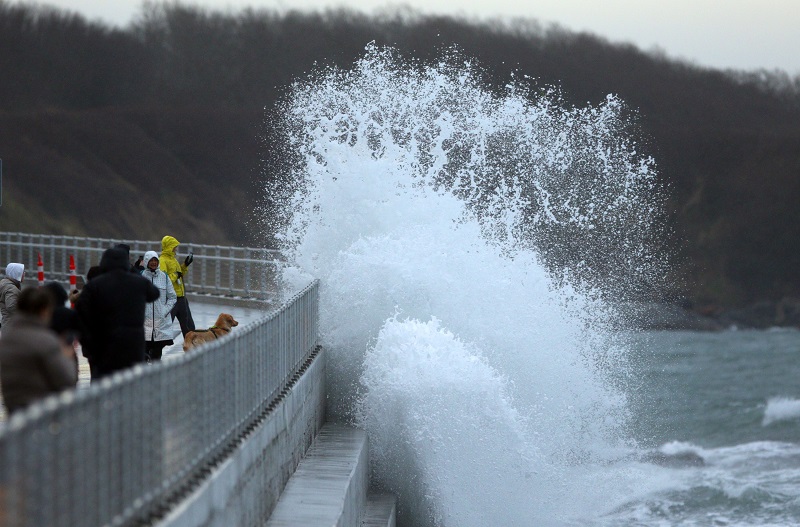Atmospheric river packing several powerful rainstorms heading for southern B.C.

VANCOUVER – Power has been restored in two Vancouver Island communities that lost electricity early last week as snow, ice and wind storms pounded parts of British Columbia, but forecasters warn another powerful system is on the way.
BC Hydro says service was restored to the northwestern Vancouver Island villages of Tahsis and Zeballos late Sunday after more than 700 customers lost heat and electricity last Tuesday.
Hydro says crews faced challenging conditions, including ongoing storms and shoulder-deep snow, as they worked in the remote location.
Even as the lights came back on, Environment Canada issued another weather warning for northern parts of the Island, Haida Gwaii and B.C.’s north and central coasts, as winds gusting to 110 km/h hammered those regions.
Special weather statements also cover most of Vancouver Island and the inner south coast, including Metro Vancouver, as the weather office says another atmospheric river packing heavy rain is due to hit Tuesday and continue for 24 to 48 hours.
The River Forecast Centre has issued advisories covering Vancouver Island, the south coast and Fraser Valley, saying downpours coupled with rising temperatures have the potential to melt low elevation snow packs and cause “minor to significant flooding.”
“The storms are several days away, so the exact location and intensity of heaviest rainfall is still uncertain,” the agency that issues flood warnings and other notices for B.C. waterways said on its website.
Waterways were expected to begin rising on Tuesday and could peak the following day or by Thursday, the centre said.
Environment Canada reported several storms are embedded in the impending system although the post from the River Forecast Centre said conditions are not expected to be as extreme as late last year, when catastrophic flooding occurred in the Fraser Valley and southern Interior.
“The upcoming temperatures are not forecast to be as warm as the atmospheric river events in November,” the centre said.
But it warned of “added vulnerabilities due to erosion and higher baseflow conditions” in areas still recovering from the mid-November floods and urged people to stay clear of fast-flowing rivers and potentially unstable riverbanks.
Feature image: People take pictures along Dallas Rd. as strong wind warnings are issued by Environment Canada along the south coast as a frontal system pushes across Vancouver Island during the first major storm of the year in Victoria, Tuesday, Jan. 5, 2021. THE CANADIAN PRESS/Chad Hipolito







